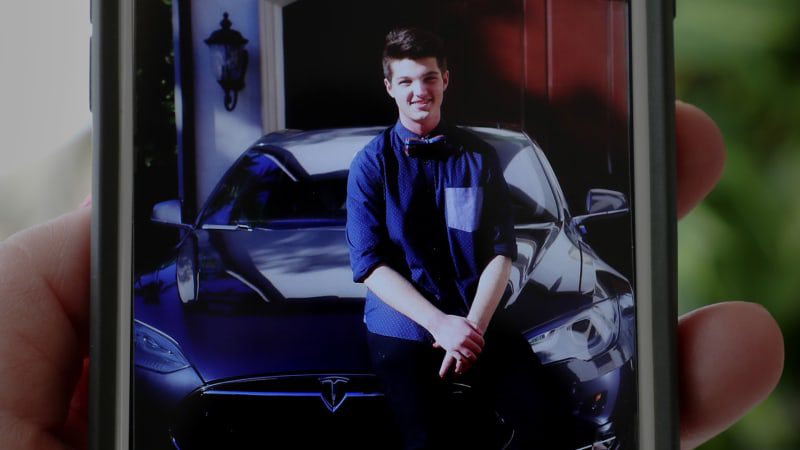Jury finds Tesla 1% liable, but owes $10.5 million, in teen's fatal crash

A Florida jury found Tesla just 1% liable in the death of an 18-year-old man whose Model S sedan slammed into a concrete wall, but ordered Elon Musk’s electric car maker to pay $10.5 million to the driver’s parents.
Monday’s verdict by a Fort Lauderdale federal jury came in what lawyers for James and Jenny Riley called the first trial against Tesla over an accident involving its vehicles. Jurors found Tesla negligent for deactivating a “speed limiter” that the Rileys had installed to keep their son Barrett from driving too fast.
Barrett Riley was driving at 116 miles per hour (187 kph), on a curve with a posted 25 mph speed limit, on May 8, 2018, when he lost control of his 2014 Model S while trying to pass another vehicle, causing a fire. Another passenger also died while a third occupant survived.
Though jurors found Barrett Riley 90% responsible and his father 9% responsible for the crash, it awarded James Riley $4.5 million and Jenny Riley $6 million.
Tesla’s lawyers did not immediately respond on Tuesday to requests for comment.
Riley’s parents said the crash occurred after Tesla, without their knowledge, disabled a device capping the Model S’s speed at 85 mph (137 kph).
They also said a design defect in Tesla’s lithium-ion battery cells and battery pack contributed to the fire.
Tesla said Barrett Riley’s recklessness caused the crash, and his parents should have taken away the keys after his March 2018 speeding ticket for driving at 112 mph (180 kph). It also said Barrett Riley tricked its technician into disabling the speed limiter, that the battery design was not defective, and that the design was “overwhelmed” by crash forces.
In a statement, the Rileys’ lawyer Curtis Miner said they were pleased with the negligence finding, and hoped the case would help prevent other accidents and save lives.
Tesla has faced a variety of lawsuits and regulatory probes over crashes tied to its Autopilot feature. That feature was not at issue in Barrett Riley’s crash, court records show.



